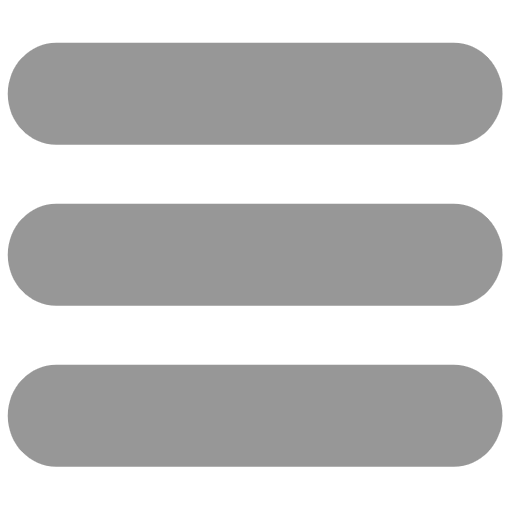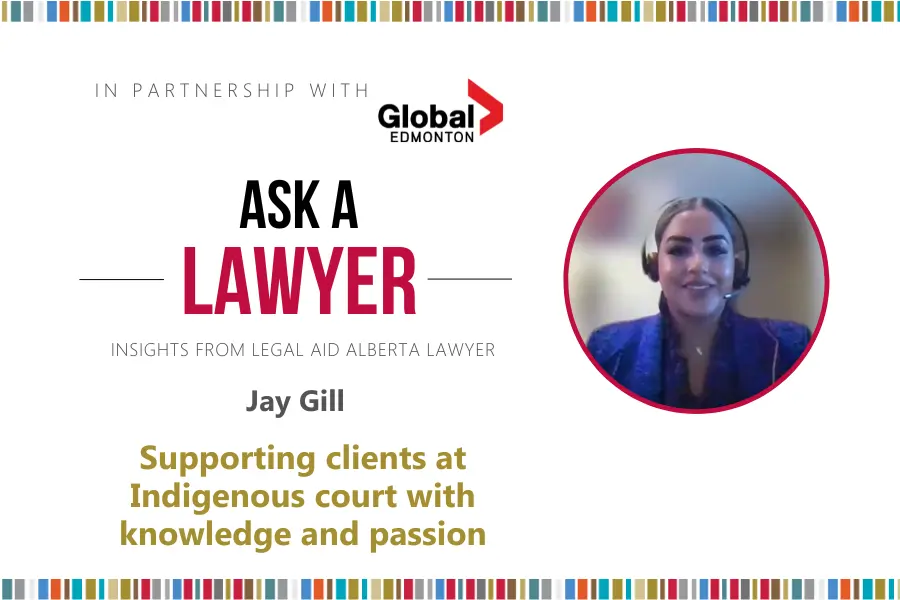Legal Aid Alberta staff lawyers are uniquely positioned to deliver quality representation for clients at Indigenous courts
Legal Aid Alberta staff lawyer Jay Gill says lawyers representing clients in Alberta’s Indigenous courts need to bring patience and knowledge into the court in order to give clients the best representation.
“I’m here doing what LAA stands for – helping society’s most vulnerable and most traumatized people – without worrying about what is billable. And I have LAA here to back me up and provide me with support and training,” she says.
Indigenous courts are specialized courts that take a restorative approach to criminal justice.
“My goal as a Legal Aid Alberta lawyer is not to just close a file or dispose of someone’s legal matters, but to help the court help connect them with their culture and to the guidance and resources they need to succeed and never come back to court again.”
Gill appeared as a guest on Global News for this month’s segment of Ask A Lawyer to explain what Indigenous courts are, why they’re important and how they work.
Watch the Ask A Lawyer segment here:
Please view the video using the Microsoft Edge browser.
Transcript of the program:
Vinesh Pratap: June is National Indigenous History Month and it is a chance to celebrate the rich cultural traditions of Indigenous people but it’s also a time to acknowledge a dark chapter of history – the continuing intergenerational trauma caused by colonial practices like Indian residential schools joining us to talk more about a specialized court and the ways that the legal system and Legal Aid Alberta lawyers are uniquely positioned to assist Indigenous people in the justice system is staff lawyer Jay Gill. Good morning Jay, how are you?
Jay Gill: Good morning. I’m doing well thank you.
Vinesh: Thank you for your time and for informing us about the court here. One of the things we’ve heard in the past is about the Indigenous court. Take us through what it is about and why it is so important.
Jay: The Indigenous courts began operating in 2019 and now they operate across the country including one in Edmonton and one in Calgary here. They provide a culturally relevant restorative and holistic system of justice for indigenous individuals including offenders, victims and the communities that have been harmed by the offender’s actions. These courts are important because just a few years ago news broke out of the 250 unmarked graves that had been discovered at a residential school site in Kamloops, B.C., and many thousands of people were impacted that had survived the residential schools however they were permanently harmed and traumatized by this experience and that trauma has been passed on from generation to generation. Indigenous courts seek to address the issue of overrepresentation of Indigenous people in the justice system and it focuses on the restorative justice approach to crime through peacemaking and connecting these accused people with their culture and communities, their families and even themselves a lot of times, through establishing a connection with the elders that are involved in these courtrooms.
Vinesh: Jay, let’s expand upon that term, with restorative justice. Take us through what that means and how does it work and what are the outcomes that you are seeing.
Jay: It’s an approach to justice that seeks to repair harm by providing an opportunity for those that have been harmed and for those that take responsibility for the harms to communicate about and address their needs in the aftermath of a crime. the court restores a person to society. It holds people accountable for their actions, however it closely examines their circumstances like the intergenerational trauma that has brought them to conflict with the law. And it brings accused people into contact with people that have been affected in the communities up have been affected by the crime so they have a deeper understanding of their consequences of their actions. And it’s about establishing connection and having these people reconnect with their communities because a lot of them are lost and they are not accepting their identities.
Vinesh: So Jay with that, how does that work with the court process or the justice process and it starts for individuals so for example, if they identify as Indigenous are they automatically directed to the Indigenous court or how does that work
Jay: No – this is a voluntary program. The first thing is taking accountability for your actions and wanting to participate in a healing plan which is part of this courtroom and during that healing plan these individuals are going to be connected with counselling, they will have case monitors assigned to them by the Elizabeth Fry Society, for example, and they then help this individual develop a healing plan according to what needs to be addressed in terms of the trauma. And then get connected with the elders Its a process. It’s not something that they come into court, they accept the fact that this is what has happened and then everything goes away. I’ve worked with individuals for months that have been working on their healing plans and on themselves – and discovering themselves, as a result.
Vinesh: Thank you for joining us and for putting the spotlight on Indigenous courts and the work that legal Aid Alberta does in this area, and think you again for your time.
Jay: Thank you.
Vinesh: Legal Aid Alberta lawyers specialize in immigration, youth and adult criminal defence, child welfare, domestic violence, family law amongst others. if you have a question for lawyers you can send it to legalaid.ab.ca


